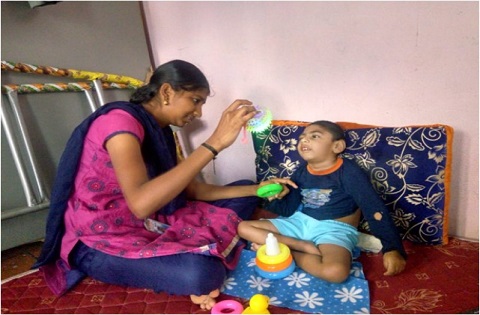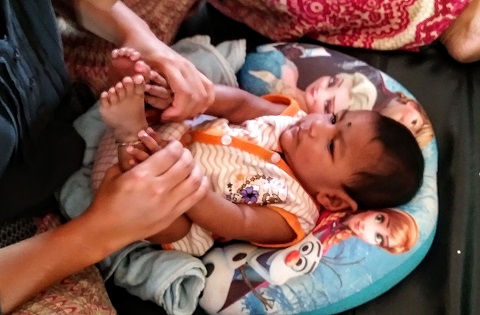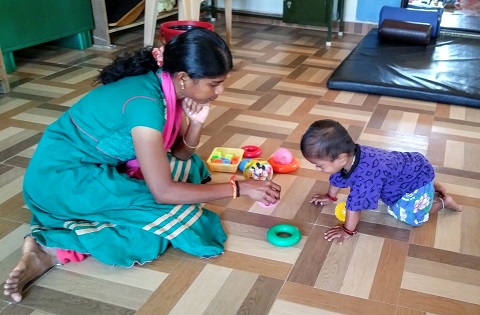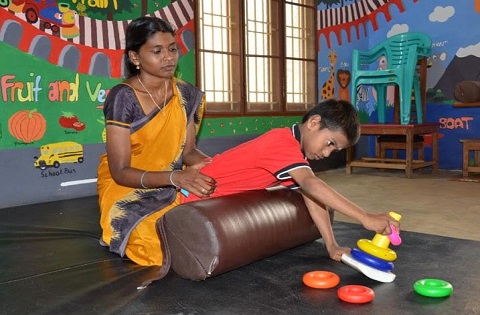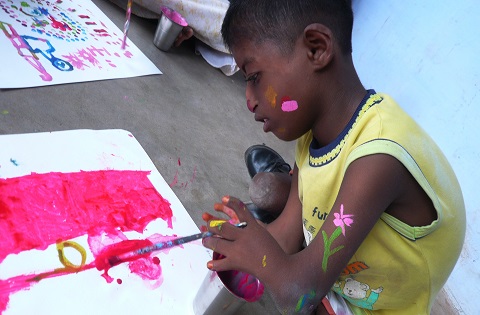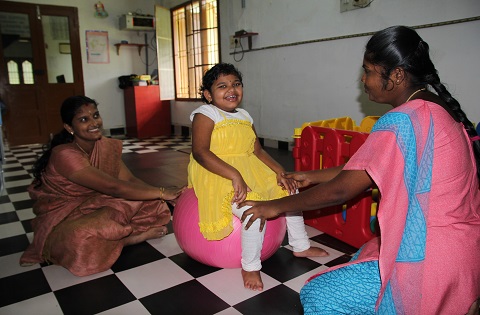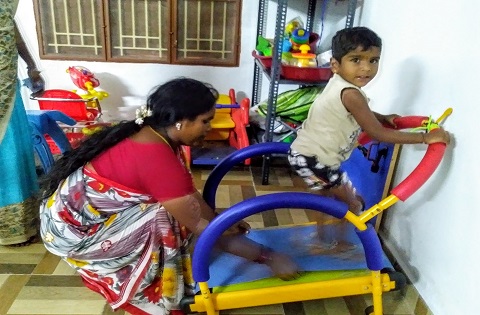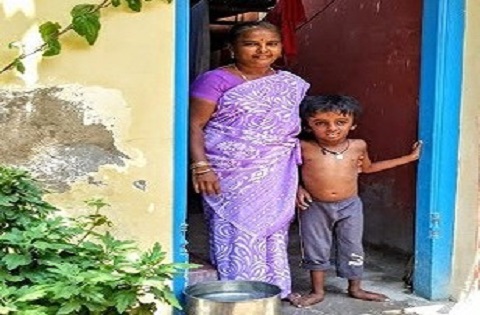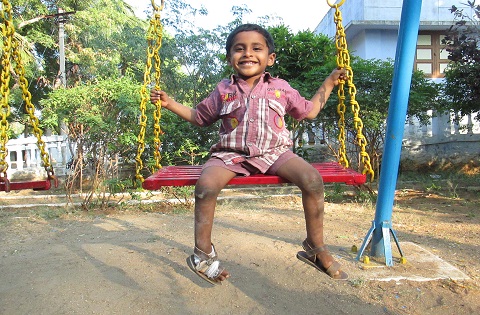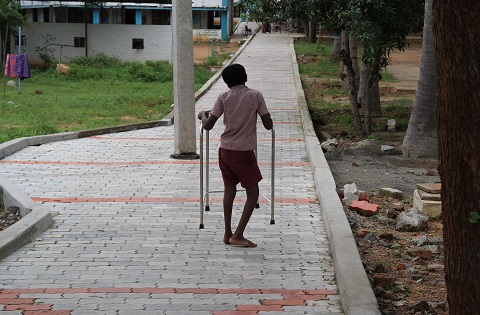Child Rehab and Development
Screening
Using the EI® app, children in the communities are screened for delayed development at any location, including Primary Health Centres, Village Sub-Centres, Anganwadi Centres (Integrated Child Development Scheme), Pre-Schools, schools or directly in their homes.
Screening occurs with use of the Trivandrum Development Screening Chart and Washington Group / UNICEF Child Functioning Module within the EI® app. All children screened positive are flagged in the EI app for further follow-up by the implementation teams.
Child Rehab and Development Services
Comprehensive Assessments are performed at baseline and repeated periodically (usually every 6 months) using the EI® app and include:
- General Assessment by Community Rehabilitation Workers following the International Classification of Function and Disability Model.
- Environmental Assessment (looking at home and community factors).
- Physiotherapy Assessment, GMFM (Gross Motor Function Measure) for children with motor impairment.
- Speech and Language Assessment evaluation tool for children with communication impairment.
- Special Education Assessment and FACP (Functional Assessment Checklist for Programming) for children with cognitive impairment.
- WEE-FIM (Pediatric Functional Independence Measure) for all children.
Parent Outcomes including MCSI (Modified Caregiver Strain Index), FES (Family Empowerment Scale), CI (Caregiver-Child Interaction) for all caregivers.
Goals and Therapy Planning:
- Families identify and set goals for therapy using the COPM (Canadian Occupational Performance Measure).
- Rehabilitation Specialists work with families to identify child strengths, impairments and goals and create an individualized Early Intervention plan for each child for a set period (typically 6 month period)
Delivery of Services:
- Service delivery varies depending on the process flow and set-up of each organization
- Service delivery models include community / home based, centre based, school based, mobile clinics, tele-rehab or a combination of these
- Referral to Medical or Surgical Specialists through camps occur to support medical needs of children
- Provision of Assistive Devices and Technology (wheelchairs, walkers, postural devices, hearing aids, communication aids, etc.) through assessment and delivery camps are also organized
Community and Parent Supports:
- Formation of Early Intervention parent groups.
- Monthly parent small-group meetings and parent large-group meetings every 6 months.
- Parent social media groups for peer connection and mentorship.
School Enrollment and Inclusion
- Enabling Inclusion® programs
Research
See our publication below which highlights how the Enabling Inclusion® program and app improved rehab worker job satisfaction, child development, program engagement and school enrollment.
Krishna D, Mutthukarrupan S, Bharathwaj A, Ponnusamy R, Srinivasan, S, et al. Rapid-cycle evaluation in an early intervention program for children in South India: optimizing service providers’ quality of work-life, family program engagement and school enrollment. Frontiers in Public Health. (2020).

